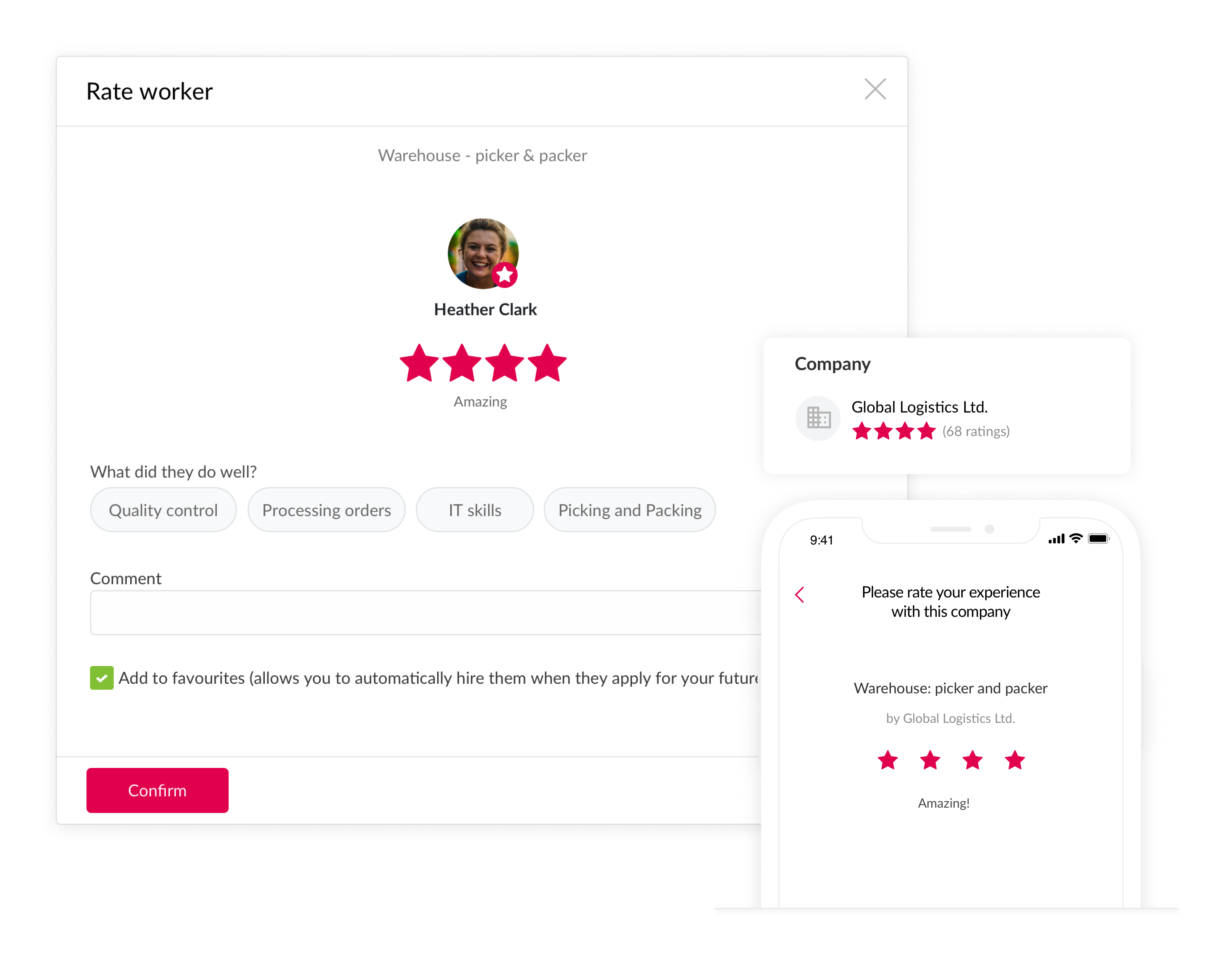What does ‘performance appraisal’ mean?
This process uses employee reviews to analyse and evaluate performance, skills and development areas based on data. Through analysis, managers can identify strengths and opportunities for improvement and make appropriate decisions. Any staff member is entitled to an employee review during a (semi-)annual quality interview or due to special occasions such as promotions, onboarding processes for new tasks, or well-founded dismissals.
The importance of employee reviews for companies
Performance appraisal is the basis for data-based strategies and measures that increase the company’s performance and systematically develop employees. The results of the reviews are as follows:
- Career development and objectives (talent management): Creating data-based, tailored career development plans by identifying individual strengths.
- Optimising performance and allocation of resources:Maximising the company’s overall performance by dispensing resources efficiently.
- Promotion and bonuses: Making decisions on promotions and bonuses based on the reviews and rewarding employees for their performance.
Methods for measuring employees’ performance
Companies face the challenge of finding suitable methods for performance appraisals in order to make them effective. Everyone involved, employees as well as managers, has individual preferences. They range from interviews to KPI-based measuring. It is important to note that there is no single perfect method within this wide range. Often a combination of several methods might be the most efficient solution. Here are some common measurement methods:
- Self-assessment: Employees reflect on their own performance and skills, which they evaluate and write down. Then the employee discusses the self-assessment with their manager during the employee review and compares it to the assessment of the company.
- Quality interviews: Interviews allow for comprehensive analysis and assessment. Performance, goals, and areas for development can be discussed, while employees and managers can share their views and look for solutions together.
- KPIs: Key performance indicators like sales numbers or customer feedback provide quantifiable and comparable data to measure target achievement and objectively evaluate employees.
- Analysis of previous testimonials and certificates: A review of reports and testimonials complements the employee assessment and allows comparison to past performance.

What a good performance appraisal should include
Since the performance appraisal should be well-grounded, it needs a wide range of criteria considering the employee’s overall performance. Soft skills, expertise, and measurable objectives play a significant role.
Analysing expertise and measurable objectives
The skills and objectives assessment helps to objectively evaluate an employee’s performance. It provides an extensive overview of the employees’ strengths and development potential within the company. It also lays the foundation for comparable assessment. The following criteria play an important role in this process:
- Sectoral know-how: Knowledge of the industry and internal processes boosts productivity and improves work-flow efficiency.
- Quality of work: Low error rates and increased efficiency have a direct impact on customer satisfaction and contribute to the company’s reputation.
- Efficiency: The ability for goal-oriented work, and prioritising and meeting deadlines makes planning and implementing projects a lot easier. Working efficiently contributes to customer satisfaction and builds confidence in the team’s aptitude.
- Troubleshooting skills: Spotting problems, developing solutions, and taking part in finding answers strengthens innovation and efficiency within the company and boosts a dynamic and adaptable company culture.
- Service orientation: Customer satisfaction is measurable through feedback and surveys. An efficient budget management and budget adherence help optimise resources and enhance the company’s reputation.
Evaluating the employee’s soft skills
Soft skills influence teamwork and give countenance to the company’s success. If team members stick together and are happy with their coworkers, they are more motivated and productive. Performance assessments therefore must consider social, communication, and problem-solving skills. Crucial soft skills are:
- Ability to work in a team: Cultivating team spirit and cooperation creates a positive working environment, boosting motivation and productivity.
- Communication skills: Honest and positive communication reduces misunderstandings and improves cooperation.
- Ability to work under pressure: The ability to deal with pressure and stress while maintaining a high quality of work stabilises the company’s performance even in challenging times.
- Flexibility: Being open to change contributes to a positive working environment, especially in times of crisis. Flexible, adaptable employees become role models and help establish a flexible company culture.
- Leadership capability: Managers supporting their teams and being open to their employees can motivate talents and improve the team’s performance.
Risk of subjective performance appraisals
Valid performance appraisals demand transparency, fairness, and the use of objective criteria. Avoid subjectiveness as it might blur the image of an employee and not correspond to reality. There is a risk of prejudice and unsoundness. The following measures can help avoid subjective appraisals:
- Using consistent criteria and measurable objectives makes it possible to compare and evaluate employee’s overtime. It restores objectivity and lays the foundation for fair ratings. Managers can compile evaluation sheets in cooperation with the HR department.
- It is essential to establish a culture of honest feedback. Performance assessment is a continuous process and must be documented accordingly. Regular performance reviews encourage constant improvement and development.
- Introduce 360-degree feedback or assessment groups to collect feedback from managers as well as team members and other relevant employees. Various perspectives allow a detailed picture of the target achievement and the skills of an employee. By considering various points of view, subjectiveness will be balanced.
The Coople star system: More objectivity when rating a worker
Coople uses objective assessment systems, which are based on feedback from companies who have worked with Cooplers in past jobs. They offer valuable insight to companies for assessing the performance of potential candidates. After every job, both companies and employees can rate each other with a 4-star rating system.

The feature “Auto-hire” is another data-based tool supporting companies with the recruitment of top talents. The most trustworthy Cooplers can be hired automatically and straight from the platform, which saves companies both effort and time.
Bottom line: The art of performance appraisals
Performance appraisals are key to individual improvement in performance as well as sustainable company development. Performance appraisal is the centerpiece, no matter whether it is about career development or the allocation of resources. Methods like self-assessment or KPIs offer various approaches. For a holistic assessment, measurable objectives and soft skills need to be considered.
Objectivity is essential to prevent prejudices. If criteria are consistent and the culture of feedback is open and widespread, the performance appraisal will be fair. Coople’s rating system is based on the employer’s objective experience, which is complemented by innovative tools like favourite pools and the auto-hire feature.
Searching for excellence is an ongoing process. Use the insights provided in this article to strengthen staff development and to support your team by hiring the best talent.

